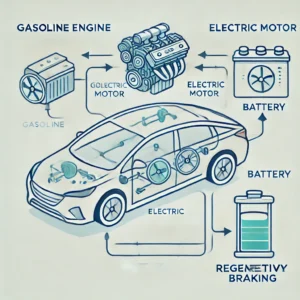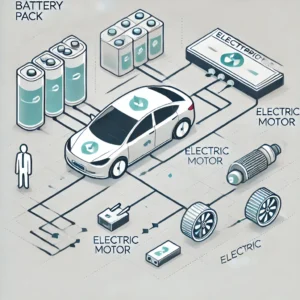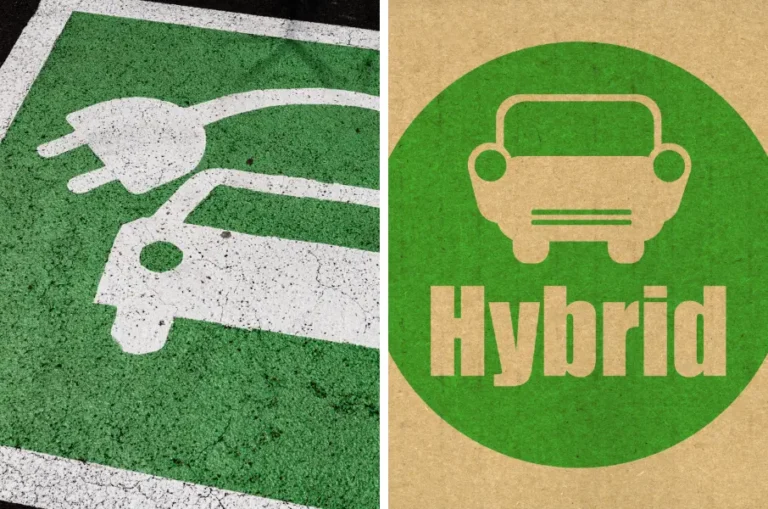Hybrid vs. Electric Cars: Which is Best for You?
Hybrid and electric cars often confuse those willing to make the switch to the sustainable world of transportation. However, hybrid and electric cars have different pros and cons. In this era of global push towards sustainable transportation, such choices can help one choose the right car. Let’s head on to the key differences, benefits, and limitations between hybrid versus electric cars.
1. How Hybrids Cars Work
A hybrid car has a gasoline engine and an electric motor. Each power source works together or independently to conserve fuel at its best.
Plug-in hybrids PHEVs allow the drivers to recharge the battery meaning that at sometimes, for shorter trips, they are not compelled to use more fuel .
The conventional hybrids like the Toyota Prius recharge by regenerative braking .

Hybrid Benefits:
Fuel-saving: It consumes less fuel than the average gas car .
No fear of running out of range: Gasoline, being used as a backup, allows people to go around for hundreds of miles without having any qualms about finding a charging station.
Less emissions: The emission is lower than average gas-powered cars; however, they do not equal that of the electric vehicles.
2. How Electric Vehicles (EVs) Work
An electric car runs completely on electricity that it gets through a big rechargeable battery pack. There is no combustion engine, which results in no tailpipe emissions.
The popular ones include the Tesla Model 3, Nissan Leaf, and Chevrolet Bolt.

Advantages of Electric Vehicles
Environment-friendly: No emissions, which means no air pollution.
Low maintenance: Has fewer moving parts than a standard gasoline engine
Less costly to run: Electricity is cheaper than gas in the long run
3. Hybrid vs. EV Purchase Comparison
Hybrids are less costly to buy than Electric vehicles and tend to make them even more appealing to budget-conscious buyers.
Electric Cars In most nations, electric cars qualify for government incentives and rebates, which also makes them even less expensive compared to the purchase price.
Characteristic Hybrid Car Electric Car
Purchase Price Lower Higher
Fuel Cost Moderate Low (electricity)
Maintenance Moderate (Engine + Battery) Low (Battery only)
Emissions Lower compared to gas cars Zero tailpipe emissions
Driving Range Long (with gas backup) Depends upon the model available, typically limited
4. Driving Range and Charging Infrastructure
Hybrid vehicles enable more distance because they use both gas and electricity. They are ideal for individuals who can travel extensively or live in areas with fewer accessible charging stations.
Electric vehicles require charging infrastructure, but networks are expanding rapidly. Some models, like the Tesla Model S, even have ranges exceeding 400 miles with one charge.
5. Environmental Impact
Hybrids emit less than conventional gas cars but do not eliminate the use of fossil fuels.
EVs are greener, but again, all this is highly dependent on where you get your electricity from: the coal plant vs. the solar panel 6. Which One Should You Buy?
Buy a Hybrid if:
You often take long road trips.
You need a mix of fuel efficiency and distance.
You don’t have charging available where you live. Buy an Electric Vehicle if:
You care about the environment and want no emissions.
You have access to a charging station or home charger.
You prefer reduced servicing and operating costs.
Conclusion: Hybrid or Electric?
Hybrid cars have their own benefits, just like electric cars. Everything depends on how you lead your lifestyle or how you drive. If you really need flexibility and long distance travel, then a hybrid would be better for you. But if the use is only to minimize carbon footprint with really low running costs, then an electric vehicle is the right choice. In any case, though, the options are a step forward into a greener future and contribute to decreasing dependence on fossil fuels while decreasing emissions.


